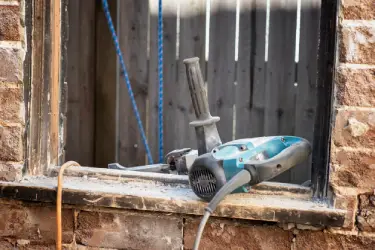When looking for a “work injury lawyer near me,” you want to find a lawyer well-versed in the Labor Law. Labor Law §§240 and 241(6) apply to workers engaged in construction, demolition or excavation activities. Labor Law §240 also applies to a list of enumerated activities, including altering, repairing, erecting, painting, and cleaning. It has long been held that protection under Labor Law §§240 and 241(6) also extends to work that does not specifically fall into one of those enumerated activities as long as the work is related or relevant to one of the enumerated protected activities. What exactly “related or relevant to” means has been an issue examined by some interesting recent Appellate Court decisions.
Work Injury Lawyers with Expertise
A wise “work injury lawyer near me” should be familiar with these decisions. Take for example, a recent Second Department decision that explored this issue. This case arose from an incident when a man sustained an injury while taking measurements in preparation for fabricating coping stones. The owner of the building hired a general contractor to renovate the building. The general contractor hired a masonry contractor to perform the masonry work. The masonry contractor hired fabricators to fabricate sills, lintels, and coping stones for the project. Part of the job for the fabricators involved the plaintiff going to the work site and taking measurements prior to fabrication. The sills, lintels, and coping stones were all fabricated off-site.
In the day of his accident, the plaintiff came to the work site to take measurements. The measurements determined the size and number of coping stones they would fabricate for the roof of the building. The plaintiff fell from the roof to a terrace approximately 10 to 12 feet below and suffered traumatic brain injury that resulted in a total memory loss of the accident. The plaintiff sued the owner, general contractor, and masonry contractor under Labor Law §§200, 240, and 241(6). Following discovery, plaintiff filed a motion for summary judgment pursuant to Labor Law §240. This law protects workers from height-related risks during construction work. The motion sought an Order determining the issue of liability against the defendants.
Does the Labor Law Apply?

To invoke the protections of Labor Law §240(1), a plaintiff needs permission to work at the work site. In addition, the plaintiff’s work injury lawyer must show at the time of the accident, they were engaged in a covered activity under the statute (altering, erecting, repairing, etc.).
On its own, taking measurements, as plaintiff was at the time of his accident, is not a covered activity. However, what plaintiff was doing at the time of his accident was part of the overall renovation job that was occurring at the work site. Part of the overall renovation work involved masonry work, so the general contractor hired a masonry contractor.
The masonry contractor determined that part of their work would involve the installation of new sills, lintels, and coping stones, so the masonry contractor hired a fabricator for these items. Part of the fabricator’s job in fabricating the sills, lintels, and coping stones, was going to the work site to take measurements in preparation of fabrication.
Taking measurements is not in itself a “covered activity”. However, the measurements the plaintiff was taking at the time of his accident was a “covered activity”. It constituted a “task ancillary to the construction work”. The coping stones could not be fabricated without taking measurement. The masonry work required the coping stones. Because taking measurements were necessary of the masonry renovation work, the taking of measurements constituted covered work.
The plaintiff was performing protected work at the time of his accident. He was not provided with safety devices to prevent his fall from a height. Accordingly, his work injury lawyer proved he was entitled to summary judgment pursuant to Labor Law §240.
A First Department Case
A similar issue arose in a recent First Department case. In this case, the plaintiff was assessing the damage to a roof in advance of the roof’s repair. While doing this, the roof partially collapsed causing him to sustain injuries. The roof was scheduled to be repaired and renovated, and the plaintiff was performing the initial inspection of the roof when his accident occurred. No actual construction work had begun at the time of his accident.
The work involved a complete renovation of the roof. The defendant owner moved for summary judgment, claiming the plaintiff was not performing protected work at the time of his accident. Specifically they argued plaintiff did not perform any of the enumerated protected activities listed in Labor Law §240. The First Department disagreed, holding that he was an integral part of the repair work and that his inspection was a necessary part of the overall construction work. Because the work was integral to the overall construction project, the defendant’s motion for summary judgment was denied.
The Right Work Injury Lawyer
In this circumstance, the law in the First and Second Departments are the same. However, there are some issues where the First and Second Departments interpret the law differently. In construction accident cases, there are often several different venues in which the lawsuit can properly be brought. Accordingly, you need to contact the right personal injury lawyer, and not just a “work injury lawyer near me.”


